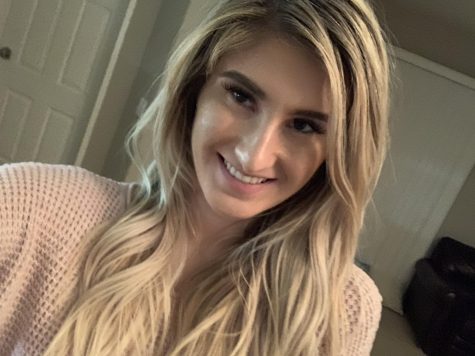Dublin High Students Apathetic Towards Government… But At What Cost?

At DHS, many students purposefully tune out politics.
Students are often unaware of events on the political front both on a national, and a global scale. Given that, nearly all students currently enrolled in Dublin High will be eligible to vote in the next presidential election, and a considerable amount in the upcoming midterm elections the apathy of students towards politics is seen by several members of faculty, and the students themselves as concerning.
Ms. Sheaff, an English teacher at Dublin High, remarked that “teenage years are for growth and self-discovery, and in fact, people of all ages are constantly reshaping their values and ideologies, it’s just part of life. “Therefore,” she explained “it’s extremely important to start developing opinions about politics and the way the world works now. But just like our ever-evolving personalities and interests, students at Dublin High should stay open to an evolving political ideology as well.”
Some students at Dublin High disagreed with the statement that students at Dublin High are purposefully unaware of political events. One sophomore mentioned that “students are committed to developing political opinions, though they don’t always choose the best sources.” Junior Michael Diaz disagreed with this statement, saying that she knew “for a fact that the only source of political information for my friends and I is Twitter.” Most students agreed with Michael’s statement, believing that though they were surrounded by political memes they made little to no effort to educate themselves on politics outside of their social media accounts, and the jokes they made with friends.
Recent political events have shown an increased interest in politics, partially due to the absurdity of recent political events. Ms. McCourt, an AP Government and Civics teacher, said that she had noticed an increase in interest amongst her students recently, voicing that “the election of President Trump and other such political scandals have created a heightened interest in politics. I have more students asking questions than ever before and a lot more questions that reflect prior knowledge than before.” Ms. McCourt did express that it remained unclear whether this interest was sustainable or merely reflective of the sensationalization of the 2016 presidential election and the Trump administration. She added that there was a heightened interest all around the country with “more protests, more opinions, but a lot of this hasn’t translated to the polls.”
After all, at the end of the day, the point of becoming politically educated is to be able to make informed decisions at the polls, right? Our generation, Generation Z, is going to be one of the largest voting blocs ever, and most of the time we don’t even bother voting. A study by the Washington Post this past November found that though the current group of eighteen to twenty-five year olds were some of the most vocally active on social media less that twenty percent of them actually went to the polls. The percentage decreased further when the polls were for less sensationalized, but just as important local or state elections. As Ms.McCourt always reminds students, “If you don’t vote, you don’t get to complain.”
Several students, we talked to voiced that the lack of political awareness wasn’t due to lack of trying. Freshman Shruti Vera said that from her perspective, “our current political climate discourages students to take an interest in what is happening within our government, and it’s next to impossible to know what you can trust.” In fact, students strongly attested that more reliable sources would convince them to take a greater interest in politics with sophomore Claire Lee going as far as to say, “If I knew which news sources I could get reliable information from I would be more inclined to keep up with what is happening in politics.”
These students have a point. We live in an increasingly marginalized society where political knowledge may seem pointless, and only another opportunity to spark angry debate. Ms.Sheaff wished to remind students, however, that in separating “yourself from political awareness, conversation, and involvement, you are separating yourself from human issues and educational opportunities.” Benefits of political awareness include increased opportunities for social change. Knowing what needs to be changed can allow individuals to work for such change.
To develop a political opinion, students should educate themselves on these issues, making sure that the information which they find is reputable and unbiased. From this point it is important to start a dialogue with others, gaining a wider perspective of what is happening within our political climate by questioning others on their beliefs.
Ms.Sheaff remarked that students concerned about discussing political topics should remember that “expressing one’s views to a group of like-minded individuals is easy and safe, and that is totally fine.” However, she encouraged students not to be afraid to express their views “to those with dissenting opinions or opposing political ideologies” because, “that is where true growth happens.” She added that “the best conversations I had during election season were with people who disagreed with me! Just remember to stay open-minded, never insult another person’s character, and back your opinions up with legitimate research.”
For those unsure how to approach the considerable feat of developing a well-educated political opinion, below the Dublin Shield has compiled advice from various members of the faculty at Dublin High:
“Start now, and start small! For example, I have a few apps on my phone that send notifications about current events and politics (national and global). This is an easy way to find out what’s happening in the world. Then, there are entertaining YouTube channels and TV shows that make politics fun to learn about (think parody shows or sketch comedies). Then, talk to your parents, family, and friends to see what they think. It’s interesting to listen to what people think about politics, and more importantly, why they feel a certain way about political issues. Finally, engage in conversation! Ask someone, “Did you hear about ___? What do you think?” and don’t be afraid to share your opinion too. Just remember that you should never stay too close-minded or stubborn to change your mind. That’s the beauty of politics, conversation, and being alive!”
Ms.Sheaff, English Teacher
“We don’t live in the time where reporters are merely giving us news. Sponsorship and corporations have influenced news delivery so much in recent decades. (Fox vs MSNBC for example). Students should bother, however, with the process of corroboration. Taking two biased sources that oppose each they’re to reach your own conclusion can be very useful! Students at DHS should be comfortable with the idea of building their political opinions throughout their adolescence. Sometimes students think I’m looking for a specific answer each time I pose a question… when really I want them to practice formulating their own opinion based on evidence. Regurgitation of other people’s opinions doesn’t advance us anywhere. Although they can serve as a basis for something, it’s vital to create your own.”
Ms.Ball, Human Geography and US History Teacher
Your donation will support the student journalists of Dublin High School. Your contribution will allow us to purchase equipment and cover our annual website hosting costs.

Morgan Minkler, a junior at Dublin High, is excited to participate in Dublin Shield to contribute to her community and to fulfill her passions for writing....

Kaushikee Nayudu is a senior at Dublin High and the Editor-in-Chief for the Dublin Shield where she enjoys writing articles covering a diverse range of...


































